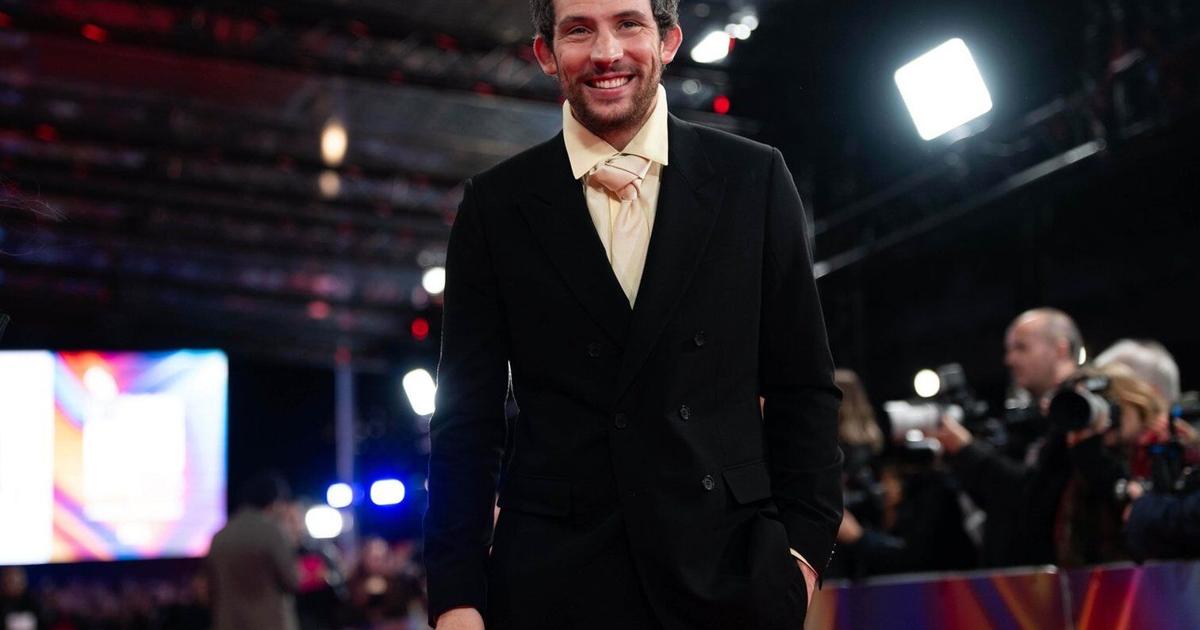Josh O’Connor needs a break. Last week, the actor told a red-carpet interviewer he was pondering taking a step back from acting for a minute.
Well, if anyone deserves a nice holiday, it’s O’Connor. Shouldering the weight of being One of Hollywood’s Most In-Demand Thespians must indeed be tiring. He is, for example, headlining not one, not two, not three, but four movies this fall alone.
O’Connor starred opposite fellow man of the moment Paul Mescal in historical romance “The History of Sound” and, over the next two months, has family Western “Rebuilding” coming out plus the next “Knives Out” instalment, in which his priest character, Reverend Jud Duplenticy, is rumoured to steal the show. (That’s even before we get to his Spielberg and Coen films on the horizon.)
Folks needing a Josh fix in the immediate future can head to theatres Friday for “The Mastermind” from slow cinema master Kelly Reichardt (“Old Joy,” “Certain Women”), in which he plays JB Mooney, a hapless sometimes-carpenter who radiates divorced-dad energy — despite still being married to Terri (Alana Haim) — and decides to plan an art heist in lieu of actually getting a job.
Things, of course, go awry.
Set in the ’70s and shot with a hazy palette befitting the period, the film is quiet, small, superb (netting a rare four stars from Star reviewer Adam Nayman), and O’Connor is typically great in it, all fumble and frown.
We spoke to the actor about his yearning specialty, the joys of slowing down and walking barefoot through the English countryside.
A lot of your characters have a deep core of longing: for a person, for belonging, for upward mobility and, in JB’s case, purpose, respect, money. Why do you think people are drawn to you for this type of performance?
Oh, I don’t know, I suppose maybe I’m a longing kind of guy. I can’t answer why people are drawn to me, but I can see why I’m drawn to other people, which is very often filmmakers who have a really distinct voice and tell stories in a way that I enjoy as a viewer. I remember seeing Kelly Reichardt’s “First Cow” in the cinemas and feeling like at the end, not only did the film stay with me, but I felt so comfortable watching her movie. I found that with all of her movies that I can really sit with them and it’s like closer to the experience of reading a book than watching a movie in some ways.
Why do you love to portray yearning?
I don’t know that I consciously do. I think we all yearn. Everyone’s yearning for something. We live in a society today where everything’s very black and white and we can be quite polar about everything. Social media was supposed to bring us closer and it’s pushed us further away from each other, and I think there’s a real lack of understanding, of contextualizing people’s beliefs being different from ours, backgrounds being different. And so that all feeds into a yearning. We’re all yearning for some improvement on our lives, for, as you said, a person, a place, a thing — it can be all sorts — so it feels to me like a really sort of primal human instinct or expression.
There is a moment in the film where JB seems to be having a moment of vulnerability post-heist, but it turns into a grift. It was so shocking that I actually gasped out loud — like, I myself fell for the con. Tell me about why this kind of turn was so delicious to perform.
I love that sequence. By that stage, he’s so far gone that he’s really only thinking about himself. For me, I’ve always really loved seeing a character fall apart onscreen: there’s nothing better than seeing someone with their head held high and then crumbled before our eyes. I don’t know whether that’s a sort of sadistic tendency or if it comes from the fact that we all understand it. We’ve all had moments in our lives where it’s all fallen apart and we have to regenerate in some ways. What’s charming about Mooney is how unaware he is of the chaos: he just doesn’t seem at any given moment to be aware that it’s already done, it’s already over, you know; he’s just trying to keep it alive.
Kelly’s films are part of the slow cinema oeuvre. In this film, for example, there is an extended sequence where JB must work to stash the stolen paintings. Why are these subtle moments so important in an era when everything seems to be getting bigger and louder? Can these types of films help people expand their consciousness?
This is why I love Kelly; her movies speak to my sort of energy a bit better than other movies. I agree things are getting louder and bigger, but they’re also getting shorter … The way that we consume media is in very short chunks and small bites, and so to sit with a movie — we’ve been trained to watch movies where (for the) hiding the painting scene, you’d see the car reverse into the pig farm, you get out the box, then we cut to inside the pig farm, maybe a little shot of the pig, then you cut to him taking the first painting up, cut to the end. He’s put the final painting up and that scene will take 30 seconds.
Whereas, I love that what Kelly’s doing: what’s the point of cinema if we’re not going to get to experience the real? The reason it works in real time is that it’s f—king hilarious seeing a guy traipse around a muddy pig farm and take up painting after painting after painting, then realize he’s got an extortionately expensive and heavy box to lift up and he hasn’t thought that through, then he’s got to get it up, he gets all the way up and then he hasn’t thought through how he’s gonna get down. He knocks the ladder down and … I find that more funny, I find that more meditative, a kind of calmer way of experiencing film. I love going to see a big epic gladiator film as much as the next man, but having these kind of contemplative movies as well is important.
How do you embrace that stillness and slowness in your own life?
Gardening is a really important one for me. I live in the countryside and I love going for walks. This last summer I had a brief moment back at home and I went for lots of walks in my bare feet, which was so blissful. There’s nothing I can recommend more highly than to get out into nature in your bare feet and get into the earth. And then just being in my life, being with my friends, my partner, being with my family, those are really important aspects, too.
Despite being surrounded by family and friends, JB seems so lost in the film, so alone. What advice would you give JB on how to be more present in his own life?
I think JB’s big problem is something we all have, which is not looking around us and being grateful for what we already have, rather than looking to the next thing, and looking to the future and what can we get. If you really take a second to look at what JB has — I mean, listen, he’s married to one of the Haim sisters! He’s got a great wife and he’s got two lovely boys, and sure, he’s got an annoying father who’s breathing down his neck, but he’s a skilled craftsman, he can make cabinets. So that’s often the case, just taking a moment to look around you and go, “OK, this is what I’m grateful to have.”



